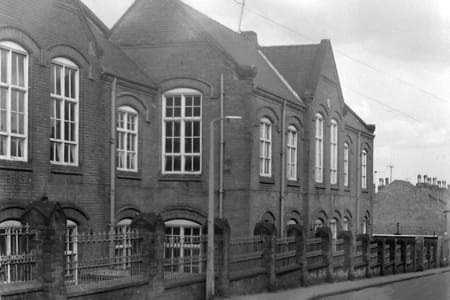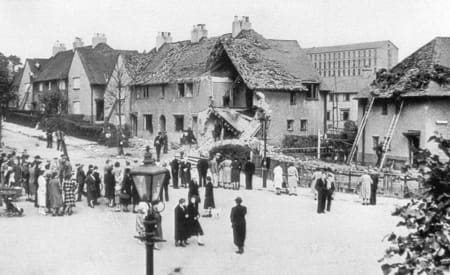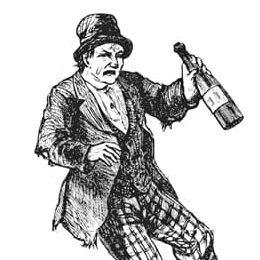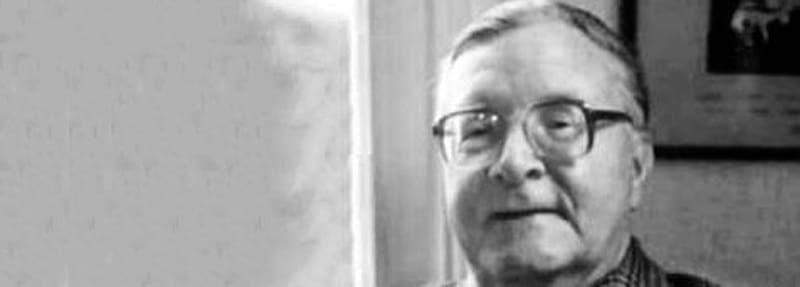by David Kirk
As I was born in December 1937, my memories of this conflict are limited but I have tried to give some flavour of my early childhood. My earliest memory is of being outside my home on Gordon Street when a single aircraft came over which was flying very low. Even at such an early age (I was nearly 3 years old) I saw that this aircraft had different markings and these markings were in the form of a black cross. This frightened me, and I screamed out for my mother who came running. We then both saw a bomb emerge from this aircraft which by then had passed over us and this was not coming in our direction. My mother picked me up and we rushed into the house. Apparently, this bomb was aimed at Stanton Ironworks and it caused some damage in the area of Twelve houses. In later years I read that no air raid sirens were activated and that the raid was a complete surprise. The bomber made it’s escape but apparently was shot down over Skegness later that evening. On one occasion I was taken in my push chair to look at the houses on Inglefield Road that had been bombed and much damage caused.
When I started school, I attended Chaucer Infants and I have memories of practice alarms being sounded and the staff leading us out of school, then along Chaucer Street and crossing over Flamstead Road in order to access the Ashes Playing Field. At the Gordon Street end of the Ashes there were Air Raid Shelters which were below ground and were accessed by stone steps. This was horrible, the shelters were dank with a terrible smell and rather frightening to very young children. Having said that though, they must have been very safe. Aircraft were constantly seen in the skies but apart from the earlier sighting of the German bomber I only ever saw “friendly” aircraft thereafter.

Each morning, my sister and I used to walk along Gordon Street looking for shrapnel and it really was amazing how much we found. In retrospect this must have originated from the shells fired from the Anti-Aircraft Battery located on Heanor Road near the present hospital which my parents used to re assure me would prevent any bombs from reaching us. This was a great re assurance to me at that time. Some of our neighbours were in the Home Guard and also the ARP (Air Raid Precautions), who were called out when the air raid sirens began their nightly wailing. I can only remember one occasion when we went into the communal air raid shelter-this was a long brick-built structure sited on Gordon Street and had long bench type wooden seats. This was crowded and unpleasant and my parents said that we wouldn’t go again, instead we used to stay in the house huddled under the stairs when the sirens sounded. This was probably not a good idea, but this is what we did.
We had relatives who lived in Abbey Street in Derby and several times a year we used to go to Derby to visit them. We always travelled by train from Ilkeston North Station on a Sunday. My outstanding memories of these visits was seeing the numerous barrage balloons in the sky above Derby. These were of course the recognised defence against dive bombers and were there to protect the vital factories such as Rolls Royce and the Railway Workshops which were fully employed in producing aircraft and tanks and other vital war equipment. On one occasion we were joined in the railway carriage by a young lady who was a member of the WAAF (Womens Auxiliary Air Force). She was stationed in the Depot at West Hallam and for a short while she became a family friend who was invited to visit us at home which she did. I can remember that she told us that her home was in the Channel Islands at Guernsey and that the Germans had taken control of the Island.

On one occasion when playing with my sister and her friends we came across the Home Guard on shooting practice on Potters Field. We walked towards them across the field but were quickly told to “clear off”. As we walked across the field we had to run as some horses came galloping towards us and I suppose that they were more afraid than we were of the bang from the rifles. Another outstanding memory is of a family visit by bus to relatives who lived in Mansfield. We missed our intended return bus and had to return later than planned in the evening. Unfortunately, this bus terminated at Heanor and we walked the 4 miles home from Heanor. This must have been in September 1944 when I was 6 years old (7 in December). The sky was full of aircraft (some of them towing gliders) for all of the time that we walked, I remember my father’s words “Someone’s going to catch it tonight” and I have always associated this with the allied landings at Arnhem. It was a long walk for a 6-year-old but fully enjoyable and totally un forgettable. I remember D Day being announced and my family explaining its purpose and importance to me.
Then VE Day (Victory in Europe), wild celebrations and enjoyment, bunting and flags being displayed in every household and street parties in every street. I attended the Gordon Street party, tables placed along the street, all the children seated there attended by all the neighbours, nearly all women as the men were in the armed forces. High excitement was the order of the day. The war however continued to rage in the Far East and then one day we heard of a dramatic development and that Japan had surrendered. This apparently was the result of the dropping of 2 new, powerful bombs known as Atom Bombs which had caused widespread destruction and major loss of life in Japan. This Day became known as VJ Day (Victory over Japan) and once again street parties and celebrations were the order of the day.
In those early days I can remember seeing Barton’s buses hauling a trailer which carried some form of gas, also some buses had a single deck for passengers and a long gas “bag” where the upper deck would have been. The gas of course was used to power the buses instead of petrol. Not all buses were powered this way though.
During the war years, Ilkeston had three railway stations. Ilkeston Junction station was sited on the Erewash Valley line of the LMS which had local services to Nottingham, Chesterfield and Sheffield and was also the junction for the short branch line to Ilkeston Town Station. Ilkeston Town station was at the bottom of Bath Street at the end of the short branch from Ilkeston Junction Station. Ilkeston North Station was sited on the LNER line which ran from Grantham via Nottingham Victoria over Bennerley Viaduct to Ilkeston North and Derby Friargate.
As a small child a regular treat for me was to be taken by my mother to Ilkeston Junction Station and then a ride on the train to Ilkeston Town Station. One of our regular walks was along the Erewash Canal and in those years, there were still working barges conveying merchandise and coal on the canal. I used to marvel to see these barges negotiate the locks at Potters.
Food was in very short supply during my early childhood and looking back on this over 70 years after I am deeply grateful to my parents for the way they managed to bring up my sister and myself so well despite the shortages. It was only after the war had finished that I was able to eat Bananas, Pineapple and Ice Cream. Basic food was the staple diet with little variation. Having said all of this, these were very happy times despite the austerity. The milk was delivered daily by the Co-op milk cart which was hauled by a large friendly shire horse and this is an outstanding memory of my childhood. The roads were never very busy as few people had cars, lorries were quite small and mainly operated locally. The bulk of merchandise was carried by rail to the nearest railhead and conveyed by road vehicle (some of it horse drawn) to its final destination.



